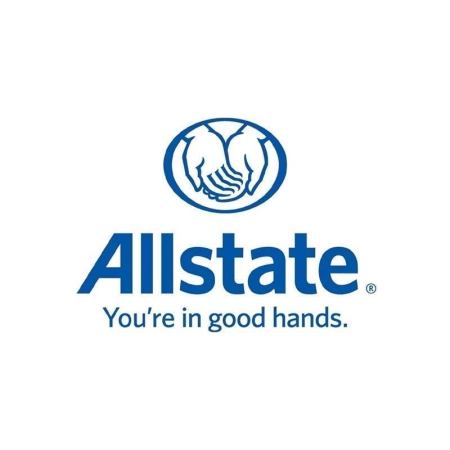
We may earn revenue from the products available on this page and participate in affiliate programs. Learn More ›
Renters insurance is an invaluable financial tool for renters in Texas, considering it covers personal property if there’s damage or loss from events such as fire or theft. Plus, it can help cover the cost to replace damaged or or stolen property (within policy limits) from inside the renter’s apartment or single-family home. It also provides the renter with liability coverage, which can help pay for others’ property damage or medical bills if the renter is legally responsible. Renters insurance also typically provides medical payment to others coverage for guest injuries that occur in the renter’s home. Medical payment to others is no-fault coverage that can help pay for the injured person’s medical bills without needing to establish who—if anyone—is responsible for the injury. These are a few examples of the numerous benefits a renters insurance policy provides, and renters in Texas can reap these benefits and gain peace of mind with the right renters insurance policy.
Finding both the best and cheapest renters insurance in Texas may seem like a daunting task with so many options available. But we have reviewed multiple policy options and providers to curate a list of recommendations to help narrow down the choices. Depending on the circumstances, a Texas resident could expect to pay anywhere from $10 to $20 per month with these renters insurance providers—and that’s before taking into account any discounts or other perks.
- BEST OVERALL: Farmers Insurance
- RUNNER-UP: State Farm
- BEST CLAIMS PROCESS: Lemonade
- BEST FOR SERVICE MEMBERS: USAA
- ALSO CONSIDER: Allstate

What to Consider When Choosing Among the Cheapest Renters Insurance Companies in Texas
Not only do the best and cheapest renters insurance companies in Texas offer affordable rates, but each provider listed here offers quite a bit for tenants to consider so they get the most value out of their policy. Before selecting a provider, renters can determine what’s most important to them in a policy so they know what to look for when comparing multiple policies.
Coverage Amount
Coverage is one of the most essential pieces of a renters insurance policy, including the amount of coverage that comes both standard or enhanced through endorsements (which are simply add-ons to a contract). Coverage limits are set by each provider as the maximum amount a policyholder can receive for a claim, so it’s important to review how much coverage is offered with a policy. For example, a policyholder will want to be aware of the coverage limits they select so their personal property can be repaired or replaced after damage or loss from covered perils such as fire, wind, or theft. Renters in Texas may be surprised at how much the standard coverage amounts can vary from one provider to another, too. With that in mind, it can be a good idea to know how much renters insurance one needs when vetting potential options.
Insurance Premiums
Cost is likely one of the most important factors to anyone searching for the cheapest renters insurance, which is why insurance premiums are a critical piece of the puzzle. Insurance premiums are simply the cost paid by the policyholder to the provider to receive coverage. Premiums can be paid either monthly, quarterly, or annually, depending on the insurance company, so if a policyholder has a preference for their budget, then they will want to compare the payment options offered by various providers.
Insurance premiums range in price based on coverage options selected, the location of the rental property, the amount of the policy deductible, and any applicable discounts, among other factors. It’s a good idea for shoppers to input the same information to each provider when comparing renters insurance to ensure they’re receiving comparable quotes for their insurance premiums, allowing them to make a true comparison as they shop around.
Policy Options
Included in every renters insurance policy are personal property coverage, liability coverage, and loss of use, in addition to medical payments to others. But policy add-ons are available for purchase to enhance and expand coverage, providing additional protection for specific scenarios or to cover specific types of personal property. Examples of additional policy options on renters insurance can include:
- Coverage for specific types of personal property: Policyholders may be able to purchase additional or extended coverage for specific belongings that might otherwise not be covered under a standard renters insurance policy or have a lower coverage limit. Examples may include jewelry, artwork, firearms, musical instruments, certain electronics, and collectibles.
- Flood insurance: Flood damage is not covered in most renters insurance policies, so if flooding is a concern for a renter, a separate flood insurance policy would need to be purchased. More information is available through the National Flood Insurance Program. Consider the best flood insurance companies on the market.
Quote Process
Comparing multiple quotes is an essential step to finding a good deal on a policy before getting renters insurance. The quote process is a vital step, and it may offer clues of what a policyholder can expect in the future if working with a particular provider. Some providers offer an online quote option, which some tenants may prefer for convenience. However, some people prefer working directly with a representative, either in person or over the phone, in case there are questions or concerns that arise. Whichever scenario a renter prefers, finding a provider that matches the preferred communication style during the quote process is worth considering.
Claims Process
Filing a claim can be the result of a stressful event, so understanding how the claims process works ahead of time may save a policyholder additional stress. Some providers offer a more expedited process than others, which can make the process smoother for policyholders. Each provider handles the claim process in its own way. Some allow every step to go through a mobile app or online platform, while others require a phone call to an agent so it’s handled in a more personal way. Reading reviews and asking questions regarding the claims process are ways a renter can get a better understanding of what their experience might look like when filing a claim.
Deductibles
A deductible is the out-of-pocket expense a policyholder is responsible for when they file a claim. Rather than pay the deductible directly, though, policyholders will have this amount deducted from their total payout on a claim. Many providers offer a range of deductible options, which is another way to customize a policy to better fit the renter’s needs. Ultimately, the deductible amount has an impact on insurance premiums; higher deductibles result in lower rates and vice versa.
It may be tempting to choose the lowest deductible amount to increase payouts on any future claims, but it could increase the overall cost of the renters insurance policy. On the other hand, while a higher deductible means a renter will receive a lower payout from a claim, they will also pay a lower rate on their insurance.
Additional Policies
If a tenant finds a basic renters insurance policy doesn’t quite fit their needs, they can purchase additional policies to cover any potential gaps. While it’s often possible to use add-ons to enhance a policy and expand coverage, not all providers offer the same add-ons or increased coverage amounts.
In some cases, a renter may need to purchase an additional policy to obtain the specific type of coverage they need. For example, if a renter wants to purchase flood insurance but the provider doesn’t offer it as an add-on, the other option is to purchase a flood insurance policy via another provider. Renters may also want to buy auto, motorcycle, pet, or life insurance, and bundling those policies with the same provider could make it easier to manage their insurance while also potentially receiving a lower rate on their coverage.
Discounts
Renters may be pleasantly surprised by the number of discounts available to them through a provider, which can greatly impact the overall cost of the policy. Those interested in saving even more might consider asking their insurance agent or customer service representative about each available discount. Common discounts on renters insurance policies include:
- Bundling discount if a renter also has another policy through the same provider;
- Protective device discount if the renter has added safety features, such as a security system or smart locks, or if they live in a gated community;
- Paid-in-full discount if a policy is paid for entirely up front; and
- Special pricing for military members, veterans, first responders, teachers, or other professions.
AM Best Rating
When searching for a good deal on renters insurance, Texas residents may also want to consider each company’s AM Best rating. These ratings were developed by AM Best, which is one of the oldest credit-rating agencies in the world and specializes in the insurance industry. AM Best evaluates each provider’s financial data and assigns a letter grade to providers based on a company’s creditworthiness and financial stability. The result is a snapshot of the financial health of a company, which may in turn give a sense of how likely it is to pay out a claim. Not all providers have an AM Best rating, possibly because a fee is involved to receive a rating, but this doesn’t necessarily mean a provider has poor finances.
The highest rating a provider can receive is an A++ (Superior) rating, while a D rating (Poor) is the lowest. A company that has a rating of B+ (Good) or higher may provide a renter with more confidence in the company and its likelihood of paying claims as promised.
Our Top Picks
Tenants living in Texas are looking for renters insurance that not only offers extensive coverage, policy perks, and options for customization but also policies that are affordable and budget-friendly as well. Regardless of what factors are most important to a tenant looking for coverage, the cheapest renters insurance companies in Texas can offer numerous benefits and budget-friendly options to consider.
Best Overall
Farmers Insurance
Why It Made the Cut:
Farmers Insurance offers competitive costs for those looking for the most affordable rates, including a low deductible option to reduce the out-of-pocket costs associated with filing a claim.
Farmers Insurance serves up multiple reasons to warrant serious consideration from renters in Texas. For starters, it offers competitive rates, which in some cases may be lower than the rates of other providers in this market. Plus, the low $100 deductible option may be attractive to those who would like to maximize the amount of their payout in the event they file a claim for a covered loss.
Although the assortment of available endorsements is somewhat limited, policyholders have opportunities to significantly increase coverage limits on their standard coverage options. For instance, renters can purchase up to $1 million of personal liability coverage, which is very high for this type of policy and could help protect them from financial ruin in the event they are liable for any injuries or damages during the term of their policy. Generous loss of use coverage options—with coverage amounts matching up to 100 percent of the renter’s personal property coverage limit and coverage terms running for as long as 24 months—can make a policy even more robust for Texas renters. Loss of use coverage can help pay for additional costs incurred when a renter’s home is temporarily uninhabitable after a covered loss. For instance, a renter with a $50,000 personal property coverage limit could be given the same amount of money to spend on their living expenses for up to 24 months.
Specs
- Personal property coverage amount: Up to $150,000
- Quote process: Online, phone, agent
- Claims process: Online, phone, agent
- Deductibles: $100 to $2,500
- AM Best rating: A
Pros
- High $1 million personal liability coverage available
- High loss of use coverage up to 100 percent of personal property limit available
- Lengthy 24-month loss of use coverage available
- Relatively low insurance premiums
- Low $100 deductible available
Cons
- Limited extra endorsements
Runner-Up
State Farm
Why It Made the Cut:
State Farm gives renters the option to purchase high personal liability coverage, plus a wide assortment of other endorsement options, for true policy customization.
As one of the largest insurance providers in the United States, State Farm has a lot to offer renters in Texas. It starts with a convenient quote process, which can be completed either online, over the phone, or in person with an agent. For renters who proceed with a policy from State Farm, the claims process offers several convenient options, too, including the ability to file and track claims through the mobile app or online platform, as well as by calling a customer service representative or meeting with a local agent. State Farm has also received the highest possible A++ rating from AM Best, further solidifying its reliability and stability as an insurance provider.
Although State Farm doesn’t offer very many discounts on renters insurance, the wide range of extra endorsements may still make it an attractive option for Texas renters. For example, a policyholder can purchase up to $1 million in personal liability coverage, which can provide significant coverage in the event they are found liable for damages or injury to others, and it can also help with associated legal expenses. Additionally, a renter can purchase up to $10,000 in medical payments to others coverage, which can help pay for the medical expenses of a guest who is injured on the renter’s property, regardless of fault. Both of these endorsements could be ideal for renters who plan on hosting guests or visitors and want to protect themselves financially in the event of a worst-case scenario.
Specs
- Personal property coverage amount: Up to $110,000
- Quote process: Online, phone, agent
- Claims process: App, online, phone, agent
- Deductibles: $500 to $1,500
- AM Best rating: A++
Pros
- High $1 million personal liability coverage available
- Relatively high $10,000 medical payments to others coverage available
- Wide range of extra endorsements for purchase
- A++ AM Best rating
Cons
- Limited discount opportunities
Best Claims Process
Lemonade
Why It Made the Cut:
Lemonade not only offers a high personal property coverage amount option, but it also has an instant claims approval process to provide the utmost convenience.
Lemonade offers an impressive $250,000 in personal property coverage for policyholders who need higher levels of coverage, which is a high coverage amount for renters insurance. It even offers up to $50,000 in jewelry coverage, which can appeal to anyone who has valuable jewelry in their possession. If a policyholder does have to make a claim, instant claim approval may be possible through Lemonade’s AI-based claims platform. Each step of the process is handled entirely through the company’s dedicated app, making for a streamlined claims process.
While Lemonade doesn’t offer too many discounts, it does give the policyholder the option of choosing a deductible ranging from $250 to $2,500, which can impact the total cost of the renters insurance policy. Plus, at the end of the year, Lemonade donates up to 40 percent of its unclaimed premium funds to various charities. Policyholders may appreciate this additional charitable act, especially if they have a particular charity or nonprofit they would like their unclaimed premiums to support. Lemonade does not currently have an AM Best rating, but it does receive an “Exceptional” rating from Demotech, which is another insurance rating agency firm conducting evaluations.
Specs
- Personal property coverage amount: Up to $250,000
- Quote process: Online
- Claims process: App
- Deductibles: $250 to $2,500
- AM Best rating: Not rated
Pros
- Relatively high $250,000 personal property coverage available
- High $50,000 jewelry coverage available
- Instant claim approval possible
- Up to 40 percent of unclaimed premiums donated to charity
Cons
- Not currently rated by AM Best
- Limited discount opportunities
Best for Service Members
USAA
Why It Made the Cut:
Eligible service members can receive robust coverage and potential discounts from USAA. A renters policy even includes flood coverage, which is a rarity in standard renters insurance policies.
USAA provides renters insurance coverage to veterans and active military members and their immediate family members. Although membership is limited to this group, qualifying members have access to a robust standard policy with optional coverages tailored specifically to the needs of military families. Examples of these benefits include standard flood coverage with every policy and up to a 28 percent discount for living on a military base versus civilian housing, both of which are rarely—if ever—included in renters policies from other providers.
USAA’s online quote tool is fairly limited and doesn’t allow potential policyholders to adjust coverage amounts for better customization. However, renters who do purchase a policy will likely find the rates are competitive, and the company could be an ideal fit for active or former service members searching for the cheapest renters insurance in Texas. USAA has also earned an A++ “Superior” rating from AM Best, further highlighting the company’s financial strength and stability. Renters may prefer using an insurance company on solid financial footing since it may be an indication that the provider is more reliable and consistent in terms of coverage and claims.
Specs
- Personal property coverage amount: Unknown
- Quote process: Online, phone
- Claims process: App, online, phone
- Deductibles: Unknown
- AM Best rating: A++
Pros
- Standard flood coverage included
- Up to 28 percent discount for renters living on a military base
- A++ AM Best rating
Cons
- USAA membership limited to service members and their families
- Limited online quote tool
Also Consider
Allstate
Why It Made the Cut:
Renters who need to work within a specific budget may appreciate Allstate’s numerous deductible options and discount opportunities.
Renters in Texas may be interested in the many benefits that Allstate can offer as a renters insurance provider, such as a wide range of deductible options and various ways to file claims to suit different preferences. Although Allstate premiums could be somewhat high in certain scenarios, and policyholders will need to make a full annual payment up front when buying or renewing a renters insurance policy, there are multiple opportunities for policyholders to earn discounts that can help lower the cost of coverage.
For instance, Allstate offers a competitive discount for anyone who bundles multiple policy types, such as an auto or motorcycle insurance policy. Doing so can also make it easier for renters to manage all of their insurance policies since they will be working with a single insurance provider. Additionally, retirees 55 and over can earn up to a 25 percent discount, too, further reducing the cost of premiums. With these discounts available, eligible renters could find that Allstate offers one of the cheapest renters insurance options in the Lone Star state.
Specs
- Personal property coverage amount: Up to $150,000
- Quote process: Online, phone, agent
- Claims process: App, online, phone, agent
- Deductibles: $250 to $1,000
- AM Best rating: A+
Pros
- Up to 25 percent discount for retirees 55 and over
- Ability to bundle multiple policy types
Cons
- Relatively high insurance premiums
- Full annual payment due up front
Our Verdict
We chose Farmers Insurance as the Best Overall pick because it offers low premiums and low deductible options, which are ideal for anyone looking for the cheapest renters insurance in Texas without sacrificing coverage options. State Farm is our Runner-Up pick because of its high liability coverage option and the policy customization options available to policyholders.
How We Chose the Cheapest Renters Insurance Companies in Texas
This carefully selected list of renters insurance providers in Texas was chosen based on a variety of well-researched factors. Each provider’s coverage options were thoroughly examined, including what’s standard within a policy and any add-ons available for purchase. We also considered rates, including whether policies can be paid on a monthly basis or whether an annual up-front payment is required, in addition to which providers offer more value for policyholders. Deductible options and discounts were also considered, since these can significantly impact the rates and overall cost of a policy.
While budget is certainly a critical factor, there are other aspects of renters insurance that may be of significant value to a policyholder. For example, we reviewed the claims process for each insurance company to determine how many options a policyholder has at their disposal should they need to file a claim. In some cases, the claims process can be a real timesaver, while in others, it could be a point of frustration if the provider isn’t as easy to work with or quick to respond.
Before You Choose One of the Cheapest Renters Insurance Companies in Texas
Renters in Texas need to know that renters insurance is not required under state or federal law. However, there are landlords who insist on their tenants purchasing a policy and providing proof of insurance before entering into a rental agreement. While it may be tempting to save money by not purchasing an optional renters insurance policy, renters insurance can provide peace of mind since it provides coverage for personal property, personal liability, medical payments to others, and loss of use as part of its standard terms. Without renters insurance, Texas tenants would be responsible for covering the cost of any damages out of pocket, which could be a tremendous expense and could wreak havoc on personal finances.
Cost of Opting for One of the Cheapest Renters Insurance Companies in Texas
Renters may be surprised at how affordable renters insurance policy options can be. According to the Texas Department of Insurance, the average cost of renters insurance in Texas is about $20 per month. The total amount a policyholder pays depends on numerous personal factors, such as the location of the rental property, their selected coverage options, personal property limits chosen, and the amount of the deductible.
Additionally, the cost of a policy can be further managed by paying monthly or quarterly instead of as an annual lump sum—although this payment option isn’t always available with every provider. It’s a good idea to keep these factors in mind when obtaining apartment insurance quotes or quotes for a single-family rental to compare renters insurance prices and benefits.
The Advantages of Opting for One of the Cheapest Renters Insurance Companies in Texas
The best renters insurance companies in Texas may offer substantial personal property coverage from covered perils, such as fire and theft, as well as personal liability and loss of use coverage that may be beneficial for tenants. The best and cheapest renters insurance policies in Texas may offer plenty of other perks and benefits to consider, including:
- Multiple discounts and discount options that can further reduce the cost of the policy;
- Generous loss of use coverage, which reimburses a policyholder if they’re displaced from their rental due to covered damage and could help pay living expenses for up to 24 months; and
- A wide variety of optional policy add-ons, such as extended coverage for jewelry or coverage for flood damage, that enhance the overall value of the policy.
FAQs
Finding the best renters insurance companies can be a fairly easy process if someone has a solid understanding of what to look for in a policy and the type of provider they’d like to use. Still, as the process unfolds, there are questions that can arise, and it could become more complex as more variables are weighed. We’ve put together a list of common questions tenants have regarding low-cost renters insurance in Texas.
Q. How much is renters insurance in Texas?
The cost of renters insurance—whether in Texas or any other state—can vary widely depending on the coverage options and other factors. However, on average, renters insurance ranges from $115 to $252 per year for a standard policy, with a national average of $174.
Q. Are the cheapest renters insurance companies in Texas reliable?
The AM Best ratings provide a snapshot of financial reliability for each provider. For example, both State Farm and USAA received A++ ratings, which is the highest rating a provider can earn, while Allstate has an A+ rating and Farmers Insurance has an A rating. Lemonade doesn’t currently have an AM Best rating, but it does earn an “Exceptional” mark from Demotech, which is another insurance rating agency. As such, each of the companies included here are likely to be reliable insurance providers.
Q. How long does it take before you get renters insurance?
It depends on the provider and the effective date chosen for the policy, but some providers may be able to activate coverage immediately for new policyhodlers.
Q. Is renters insurance required by the law in Texas?
No, renters insurance is not a legal requirement in the state of Texas, although many landlords require the purchase of a policy as part of the application approval. Even without any external requirements, tenants may want to purchase coverage for peace of mind. For instance, having renters insurance for apartments in Texas could be very beneficial if there is a break-in or fire in the unit.
Q. What does renters insurance cover in Texas?
The average renters insurance in Texas includes personal property coverage, liability coverage, medical payments to others coverage, and loss of use coverage. Personal property coverage can help cover the cost to repair or replace your personal belongings (due to loss from a covered peril), and loss of use coverage can help cover living expenses if the policyholder is displaced due to covered damage. Additionally, the liability portion of an insurance policy provides coverage if the policyholder is liable for injuries to others or causes damage to someone else’s property. And finally guest medical coverage can help pay for some of the medical bills if a guest is injured at the policyholder’s home, regardless of fault.
Q. What are the biggest reasons to get renters insurance in Texas?
This coverage can offer tenants financial peace of mind, as renters insurance can cover the costs for repair or replacement of personal property that’s damaged or stolen. Renters insurance can also help cover the costs to repair damages to someone else’s property or medical bills for injuries a policyholder is responsible for. Additionally, it can cover a portion of a guest’s medical bills if they are injured on the proeprty, regardless of fault. As such, getting renters or apartment insurance in Texas could be a shrewd financial decision.







